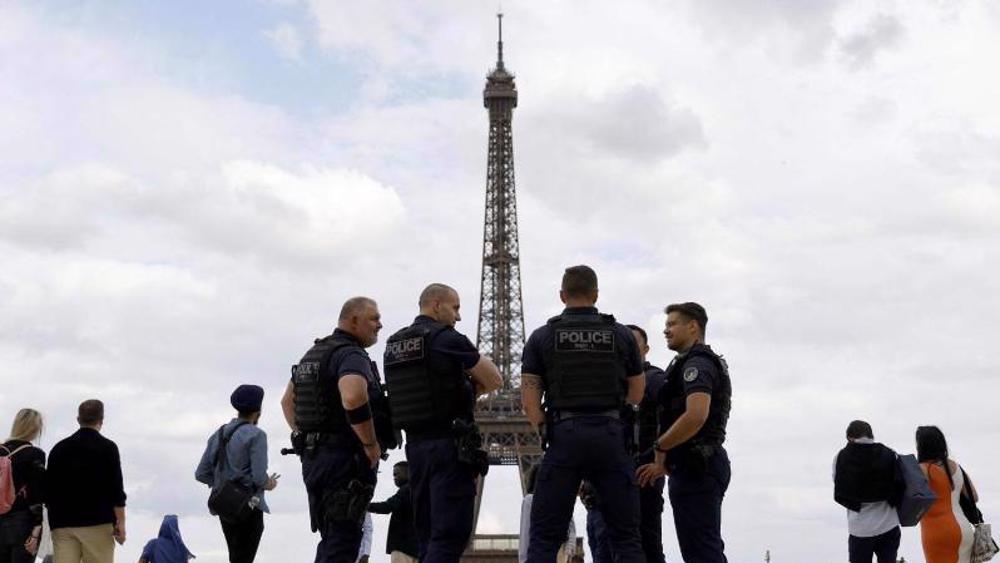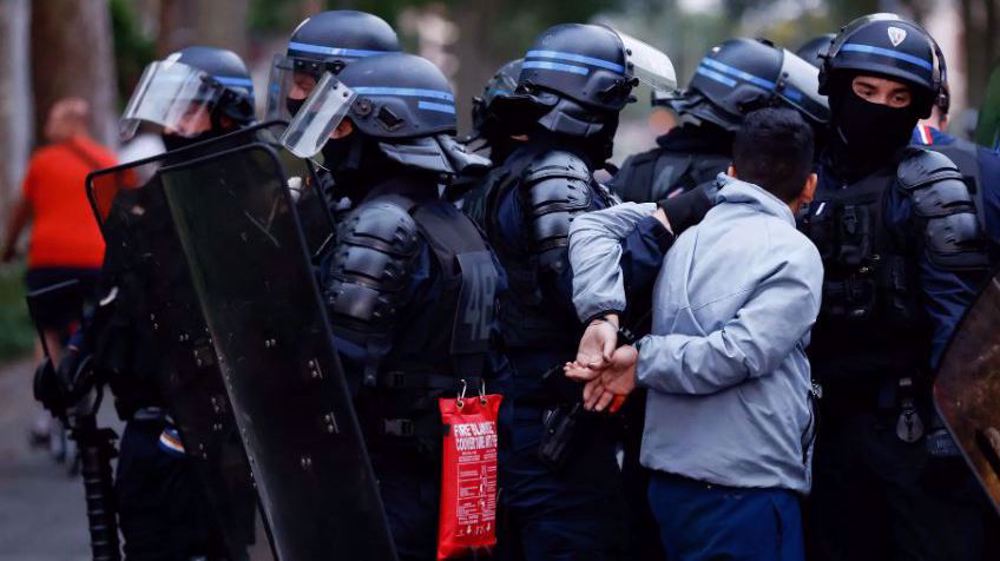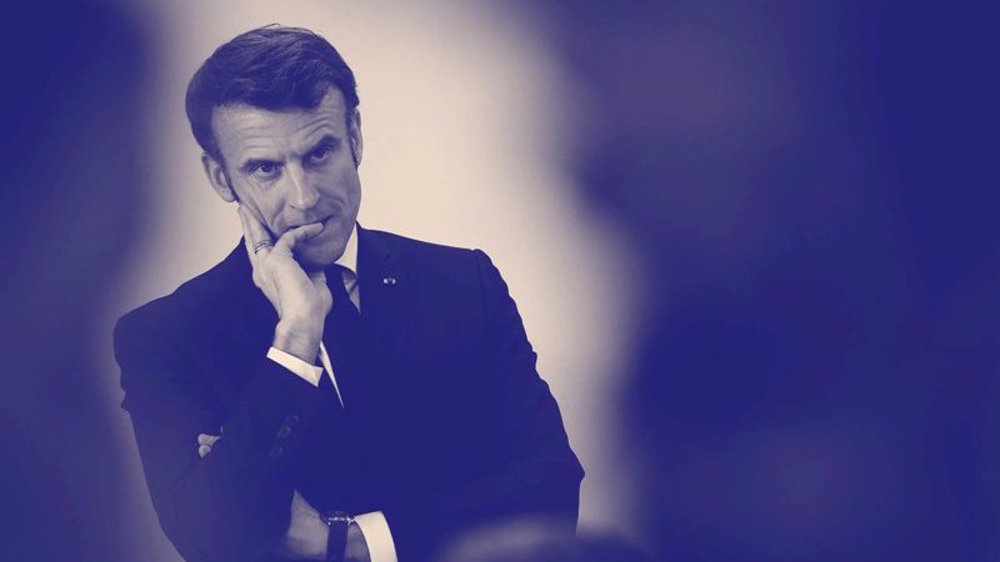France set to pass bill to let police spy through mobile phones
French legislators have agreed that police should be able to spy on suspects through remote phone access as the nation apparently calms down to some degree after mass protests following the police killing of a teenager of African origin last week.
On Wednesday, the lawmakers gave the green light to police to spy on suspects by remotely activating the camera, microphone and GPS of their phones and other devices, as part of a wider justice reform bill.
The controversial bill has faced fierce opposition from both the left and rights defenders.
Justice Minister Eric Dupond-Moretti says the bill would affect only "dozens of cases a year."
The measure would allow the law enforcement to track the geolocation of suspects through laptops, cars and other connected objects as well as phones. It will affect those suspects who commit crimes punishable by at least five years behind bars.
Furthermore, devices could also be remotely activated to record sound and images of people suspected of terror offenses, as well as delinquency and organized crime.
In a statement back in May, digital rights group La Quadrature du Net said the provisions of the bill "raise serious concerns over infringements of fundamental liberties."
The group also cited the "right to security, right to a private life and to private correspondence" and "the right to come and go freely," calling the measure part of a "slide into heavy-handed security."
Lawmakers in line with President Emmanuel Macron added an amendment to the bill during a debate on Wednesday, limiting the use of remote spying to "when justified by the nature and seriousness of the crime" and "for a strictly proportional duration."
While sensitive professions, including physicians, journalists, lawyers, judges and legislators will not be legitimate targets of the bill, any use of the provision must first be approved by a judge. The total duration of the surveillance cannot exceed six months.
Defending the bill, Dupond-Moretti said, "We're far away from the totalitarianism of 1984," referring to dystopian social science fiction novel by English writer George Orwell, who depicted a society under total surveillance. Orwell modeled the authoritarian state in his 1949 novel on Stalinist Russia and Nazi Germany.
"People's lives will be saved" by the law, Dupond-Moretti said.
The controversial measure, part of an article containing a number of other provisions, was voted through by lawmakers of Assemblée Nationale, the lower house of the bicameral French Parliament, as a wider justice overhaul bill making its way through parliament.
The police killing of Nahel Merzouk has renewed old grievances regarding police brutality and racial profiling, setting off mass protests in cities across France.
The 17-year-old boy of Algerian origin was killed late in June by a French police officer during a traffic stop in the Paris suburb of Nanterre.
Streets across the country were filled with 45,000 police officers and security forces to crack down on protesters. The government has now decided to relay its second clear and iron-clad message to them.
"Very clearly, I want a firm hand,” Dupond-Moretti said in a message to judges aired on France Inter radio on Monday as the courts were preparing to go into overdrive.
France rejects EU's comments on recent protests
On Thursday, Paris dismissed "little remarks" made by EU justice commissioner Didier Reynders a day earlier on recent protests in France, saying the European bloc had no business weighing in on questions of law enforcement.
Reynders had described as "striking" the "very high level of violence" in recent years in France, including yellow vest protests, demonstrations against pension reform and protests over Merzouk's killing.
He also made a comparison between the French police approach and that of Belgium, which, he said, "perhaps relies more on prevention... rather than direct confrontation."
"That really needs to be looked at," Reynders said at the time.
The French government criticized his comments as interfering in France's domestic affairs, with Laurence Boone, France's minister in charge of European affairs, saying the commissioner had overstepped the mark.
"I'm very surprised because upholding public order is not part of the EU's prerogatives," she said, adding that "dramatic" events like those seen since Merzouk's killing, were "not unique to France."
Boone said they required efforts to "restore calm," instead of "little remarks from people whose business it is not to make them."
She said jaw enforcement and fundamental rights in France are beyond the scope of an EU report presented by Reynders.
VIDEO | Yemenis hold nationwide rallies in support of Palestine
VIDEO | Six Palestinians including elderly women killed in Israeli West Bank raids
Saudi man arrested after deadly car attack on German Christmas market
French troops begin departure from Chad
VIDEO | Amman protest denounces Arab states’ silence on Israeli crimes
US drops $10 million bounty on leader of HTS militants
Suspected car attack on German Christmas market injures up to 80
Ukraine to cede territory despite US support: Report











 This makes it easy to access the Press TV website
This makes it easy to access the Press TV website